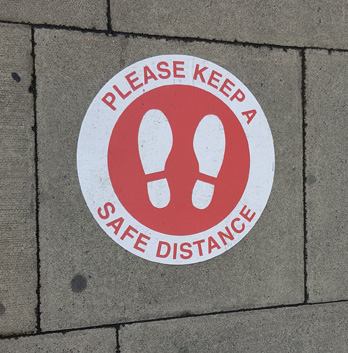SMEs have been hit more than most by the impact of Covid-19 and lockdown, but there is an opportunity for them to survive, and thrive, post-pandemic; if they adapt to new business models and take advantage of technology tools that can help them. So a webinar on surviving Covid-19 for SMEs heard, organised by the business resilience body Resilience First, alongside the ICAEW (Institute of Chartered Accountants) and Facebook.
SMEs operating in the B2C (business to consumer) sector have been hardest hit by the disruption to their face-to-face meetings with customers, but they are showing resourcefulness and an entrepreneurial spirit to adapt to new opportunities and technology platforms to bounce back better, the webinar heard. But they do need extra support from the government to make sure that they can survive to take advantage and create new jobs.
Iain Wright, Director for Business and Industrial Strategy at the ICAEW, chaired the webinar. He said: “We are a nation of small businesses. 99.3% of all businesses in the UK employ fewer than 50 people. Small and medium sized businesses represent 60 per cent of employment and 50pc of UK turnover. SMEs very often operate in the business-to-consumer sectors where face-to-face engagement with customers is paramount. They also usually have smaller resources and fewer cash reserves to help them survive a crisis like Covid-19 than bigger companies do. It is important that when we consider the impact of the biggest shock to business of modern times that we look at the impact on SMEs and what can be done to help them not only survive but prosper.”
Deji Aina, Head of Global Business Continuity at Facebook, joined the webinar from San Francisco. He said: “At Facebook we have also expanded a number of products of use to SMEs that allow them to trade and find customers online such as Facebook Shops and Business Nearby tool to help people find businesses to support in their own neighbourhoods, and we’ve made training and advice available at our Business Resource Hub. With an estimated 85pc of people worldwide now shopping online, more than 160 million businesses use Facebook, Instagram, Messenger, or WhatsApp every month to reach customers, sell and grow.
“Small businesses are coming together in resourceful ways as communities with new partnerships to bounce back from the pandemic. Entrepreneurs are resilient people. The path to recovery is uncertain and many may need support from governments or other institutions to get back on track. These are tough times for businesses all over the world, but Facebook is determined to do all we can to help them make it through.”
Stephen King is Head of Business and Enterprise at London Councils, the local government association. He said: “It has been amazing for me to personally see examples of the adaptability of SMEs during lockdown. These range from restaurant catering suppliers who now provide home delivery of vegetables to consumers to tour guides who are now running virtual tours in real time for US Beatles fans.
“These businesses do need financial support to re-skill their employees and digitise their businesses. Local Councils have already distributed £1.6 billion in grants to SMEs in London over the past few months. Talk to your council they might actually be able to help you.”
Matthew Jaffa, Senior External Affairs Manager, Federation of Small Businesses (FSB), said: “Our priority right now is to ensure that our members are positioned to take advantage of the recovery when it comes along. Many SMEs are pivoting to new models of business and looking to create new opportunities not only post-lockdown but also post-Brexit.
“We want to see flexibility in the furlough scheme and not a cliff edge approach. We also want to see specific support for SMEs with tax and other incentives for them to take on new employees. The level of support for investment in new staff needs to be significant and greater than what is currently on offer to be attractive to SMEs.”
And Jacqui Baker, Audit Director at RSM UK Audit LLP, said: “As a small business owner in the retail fashion sector, my focus has been on cash preservation, adapting to what is happening and embracing the shift to e-commerce. There is a demographic who would not have shopped online before, but who have had no choice during lockdown.
“Digital up-skilling is going to be huge for most people. This needs external funding for most SMEs. The end of September is a big month for the retail sector with the end of furlough and the freeze on rents. We need government support to get us through to Christmas where we can try to pull something back and avoid losing the ground we have held so far.”
Next
Sir Mark Rowley QPM, former Assistant Commissioner for Special Operations at the Metropolitan Police, and Matt Maer DSO MBE, Director of Security and Resilience, Canary Wharf Management are speakers at the next Resilience First webinar, tomorrow afternoon, on terrorism and extremism.
An October 7 webinar is titled ‘agile resilience: lessons from Covid-19 for the ‘next normal’’. Visit https://www.resiliencefirst.org/.










